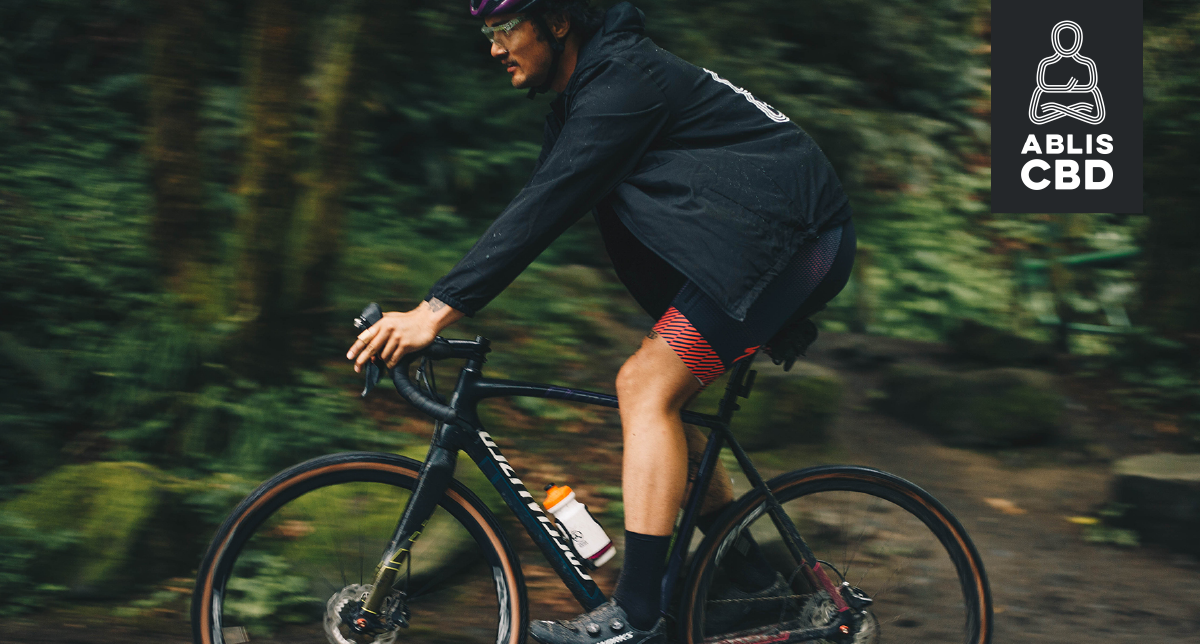Let’s be real: there is so much confusion out there about cannabidiol, or CBD, as it’s more commonly known.
Ablis is starting to roll out more CBD products, like our muscle rub, but we’re best known for our CBD infusions: the canned beverages we craft from mountain-sourced sparkling water, all-natural fruit and pure CBD extracted from hemp.
As you can imagine, we get a lot of questions about CBD., from what it is, to how it works.
We want each and every one of our customers to make informed choices about the products they consume. So to help with that, we’re clearing up five common misconceptions about CBD.
Let’s dive in!
1. Will CBD get me high?
First of all, no. Just to be totally clear, CBD is non-intoxicating, meaning it won’t cause any of the sensations associated with a THC-induced high that you get from marijuana.
Second, while CBD awareness is growing, the false idea that CBD could have any intoxicating effect, such as grogginess, giggles, or paranoia, is hard to squash. A lot of misunderstandings about CBD come from its connection to marijuana, so let’s unpack that.
CBD and THC are both naturally occurring chemicals called “cannabinoids” that come from plants in the Cannabis genus. That group of plants includes both marijuana and hemp. The significant difference between marijuana and hemp is that marijuana contains THC, and hemp does not.
Both compounds affect the body in various ways, but CBD won’t get you high. Period.
At Ablis, we use CBD isolate from hemp. So you won’t find trace elements of THC or any other cannabinoids in our products.
2. Does CBD need THC to work?
Like I mentioned, CBD is one of many cannabinoids that interact with our body’s endocannabinoid system. It’s basically a network of proteins on each of our cells that interact with cannabinoids when they enter the body. (It’s actually pretty incredible.)
You won’t find THC or any cannabinoids other than CBD in any of Ablis’ products. But that’s not true for every CBD brand. Many CBD products do contain trace amounts of THC and other cannabinoids. The idea that CBD works best with THC has become known as the “entourage effect” in our industry. We still need more research on this theory, but if you’re curious about the combined effect of CBD and THC, you can always try using Ablis products with THC. THC has its advantages, but CBD is definitely effective by itself.
When we’re talking to people about Ablis, we’ve found that the easiest way to overcome the misconception that CBD should always be paired with THC is by simply allowing people to test our pure CBD products and see for themselves what CBD can do all on its own!
3. Will CBD show up on a drug test?
When people ask this question, it’s usually because they’re worried about how using CBD could affect their current job or a job they’ve recently applied for.
CBD isolate, the thing we use in Ablis products, will not show up on a standard employer drug test. Those tests are built to detect THC for workplaces that have rules around marijuana consumption, which is a very common thing.
There is one caveat, though: if you’re consuming a CBD product that uses full-spectrum CBD, it’s possible that trace amounts of THC could build up in your system. It would have to be a lot to show up on a drug test, but if you want to make sure you’re in the clear, then choosing products that use CBD isolate is your best bet.
4. Is CBD legal?
Short answer: Yes, but we’re still working out some kinks.
Long answer: Until very recently (2018 to be exact), the federal government treated hemp just like marijuana. This meant that CBD was treated exactly like THC, which is still illegal at the federal level.
The federal government paved the way for the regulation of CBD by legalizing the hemp plant, and the CBD industry has taken off since then. But we know more specific CBD regulations, especially for food and beverage products, are in the works. And we hope they bring even more clarity to both consumers and businesses.
Because things are still in flux, CBD markets vary from state to state. Some states have passed their own rules about CBD, while others have lifted all CBD restrictions. So we always encourage people to look up the specifics of the state where they live.
We’ve come a long way on CBD, but we still have some progress to make!
5. Is CBD a magical cure-all?
Okay, if this last one sounds a little bit outrageous, that’s because it is.
As CBD’s popularity has increased, we’ve also seen more and more outlandish claims about what it can do, from curing cancer to eliminating addiction.
We wish CBD were a magical cure-all that could end disease and suffering, but it’s just not true. However, many people find CBD helpful when it comes to managing their health, so we encourage everyone to make sure they’re looking into the scientific research that’s been done on CBD and talking to a health care provider whenever possible.
People use CBD differently depending on their needs and goals, and it’s often a trial and error process when it comes to how much to use and choosing a product that fits your lifestyle.
There is still a lot to learn about CBD, and trying to figure out what’s what on your own can be overwhelming.
We’re here to help. So let us know if you have questions about CBD! We’ll help you get answers.
